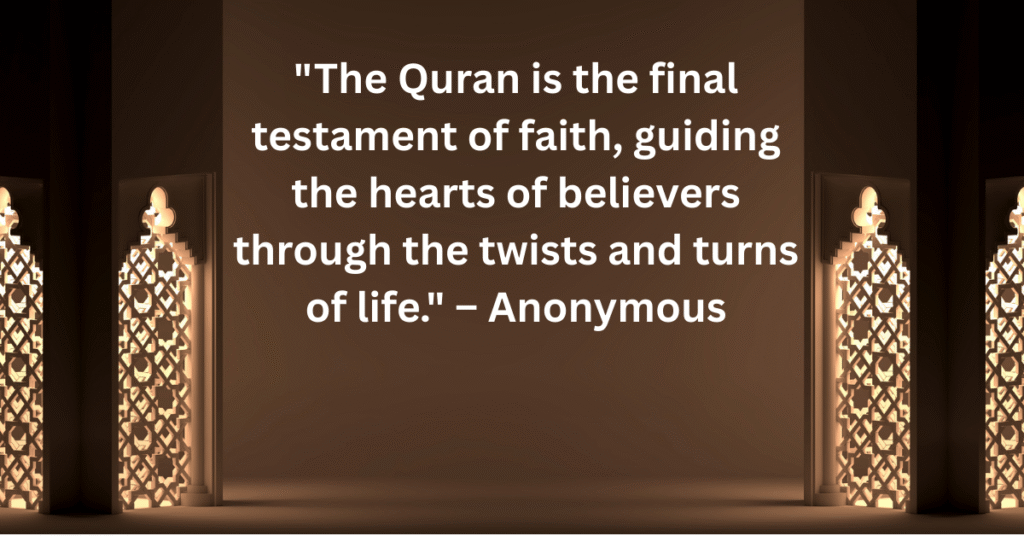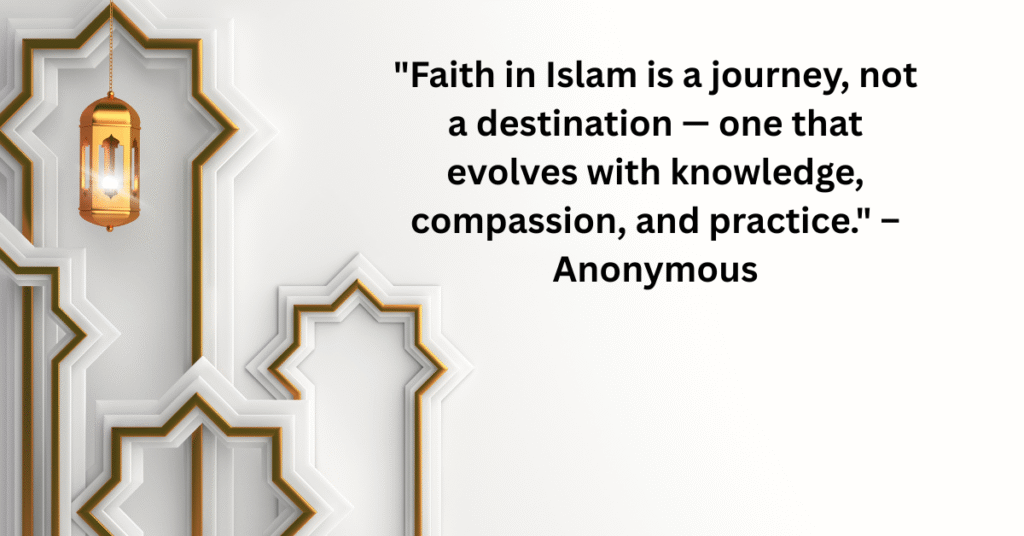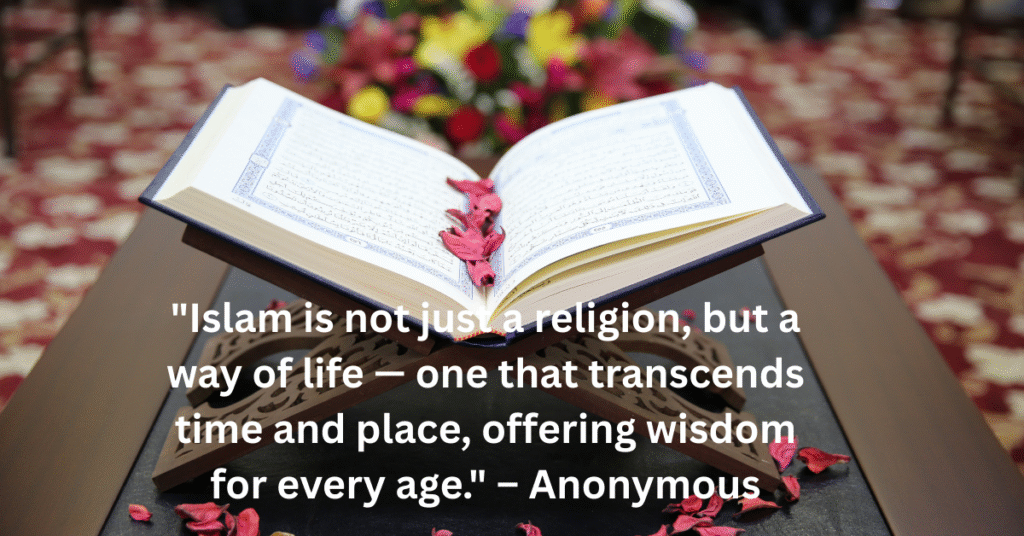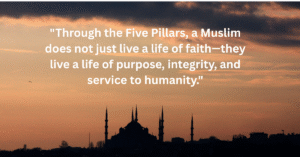History of Islam A Journey of Faith, Revelation, and Transformation

The history of Islam is a profound and inspiring journey that spans over 1,400 years, filled with faith, transformation, and revelation. It begins in the heart of the Arabian Peninsula and spreads to all corners of the world, changing the course of human civilization. Understanding the rich history of Islam allows us to appreciate its message of peace, justice, and submission to Allah. Whether one seeks knowledge for spiritual enlightenment or historical curiosity, the journey through Islam’s past offers beautiful good morning blessings for the soul and mind.

The Origin of Islam
Islam traces its roots back to Prophet Muhammad (peace be upon him), who was born in 570 CE in Mecca, a city in present-day Saudi Arabia. However, the religion itself is much older, as Muslims believe that Islam is the final and complete version of the monotheistic faith revealed to earlier prophets like Adam, Noah, Abraham, Moses, and Jesus (peace be upon them all).
The word “Islam” means “submission” in Arabic—submission to the will of Allah, the one true God. A person who follows Islam is known as a Muslim.
The Revelation of the Quran
At the age of 40, Muhammad (PBUH) received his first revelation from Allah through the Angel Jibreel (Gabriel) while meditating in the cave of Hira. These divine revelations continued for 23 years and were eventually compiled into the Quran, the holy book of Islam. The Quran is considered the literal word of Allah, providing guidance in all aspects of life, including faith, worship, morality, family, and society.
Reading the Quran in the quiet good mornings brings blessings, wisdom, and peace. It contains powerful verses that are recited daily in prayers and are memorized by millions around the globe.
The Early Muslim Community
In the early years, the message of Islam was met with fierce resistance from the leaders of Mecca, who were deeply attached to polytheism and tribal traditions. Despite persecution, a small group of believers emerged—known as the Sahabah (companions)—who stood firmly with the Prophet. Their faith, patience, and courage laid the foundation for a global religion.
To escape the oppression, the Prophet and his followers migrated to Medina in 622 CE, an event known as the Hijrah. This marks the beginning of the Islamic calendar. In Medina, Islam flourished as a spiritual and political system, and Muslims began to grow in strength and number.

The Establishment of the Islamic State
In Medina, Prophet Muhammad (PBUH) established the first Islamic state based on justice, equality, and the worship of one God. The society promoted:
- The rights of women
- The importance of charity
- The value of knowledge
- Brotherhood among different tribes
Several battles were fought between the Muslims and the Quraysh tribe of Mecca, including Badr, Uhud, and Khandaq. Despite being outnumbered, the Muslims often prevailed through faith and strategy.
Eventually, in 630 CE, the Prophet and his followers returned to Mecca and peacefully conquered the city. He forgave his enemies and removed the idols from the Kaaba, restoring it as a place of monotheistic worship.
The Farewell Pilgrimage and the Passing of the Prophet
In 632 CE, Prophet Muhammad (PBUH) performed his Farewell Pilgrimage and delivered his final sermon, emphasizing the equality of all human beings, the rights of women, and the importance of the Quran and Sunnah. Shortly after, he passed away at the age of 63.
His departure was a deeply emotional moment in history, but the light of Islam continued to shine through his teachings. Muslims around the world still follow his example in their daily lives, seeking guidance and good morning blessings from his life story.
The Four Rightly Guided Caliphs (Rashidun)
After the Prophet’s death, the leadership of the Muslim community passed to the Rightly Guided Caliphs:
- Abu Bakr (RA) – Preserved the unity of the Muslims and compiled the Quran into a book.
- Umar ibn Al-Khattab (RA) – Expanded the Islamic empire rapidly and established a strong administrative system.
- Uthman ibn Affan (RA) – Standardized the Quran in one dialect.
- Ali ibn Abi Talib (RA) – Known for his wisdom and leadership during challenging times.
Their rule was marked by justice, consultation, and adherence to the Quran and Sunnah.

The Golden Age of Islam
Islamic civilization reached its peak between the 8th and 13th centuries, known as the Golden Age of Islam. During this period:
- Cities like Baghdad, Cordoba, and Cairo became centers of learning.
- Muslim scholars made major contributions in medicine, astronomy, mathematics, philosophy, and architecture.
- Libraries flourished, and the House of Wisdom in Baghdad preserved Greek and Roman knowledge.
This era remains a testament to how Islam encouraged both spiritual and intellectual growth.
Islam Today
Today, Islam is the second-largest religion in the world, with over 2 billion followers. From the early morning good mornings to the late-night prayers, Muslims around the world find strength, peace, and identity in their religion.
The core principles remain unchanged:
- Belief in one God (Allah)
- Belief in prophets
- Prayer (Salah)
- Charity (Zakat)
- Fasting (Sawm)
- Pilgrimage (Hajj)
In a world full of distractions and chaos, Islam offers structure, morality, and beautiful good morning blessings that uplift the spirit and calm the heart.
Impact of Islam on the Modern World
Islam continues to influence:
- Ethics and values
- Art and architecture (e.g., mosques and calligraphy)
- Literature and poetry
- Human rights and social justice
From the Quranic message of peace to the Prophet’s example of compassion, Islam provides guidance relevant to both personal and social life.
Conclusion
The history of Islam is not just a record of the past it is a source of light, wisdom, and direction for the present and future. From the deserts of Arabia to the cities of the world, Islam has inspired billions through its message of peace, devotion, and service to Allah.
Starting each day with gratitude and reflection on this sacred journey brings good morning blessings to the believer. May this understanding deepen our appreciation for Islam’s beauty and inspire us to live righteously and kindly.
FAQs
Q1: Who was the founder of Islam?
A: Islam was founded by Prophet Muhammad (PBUH), but Muslims believe that Islam is the final version of God’s religion that began with Prophet Adam.
Q2: What is the Quran?
A: The Quran is the holy book of Islam, believed to be the word of Allah, revealed to Prophet Muhammad (PBUH) over 23 years.
Q3: When did Islam begin?
A: Islam formally began in the 7th century CE in Mecca, with the first revelation to Prophet Muhammad (PBUH) in 610 CE.
Q4: What is the significance of Mecca and Medina?
A: Mecca is the birthplace of Islam and the site of the Kaaba. Medina is where the first Islamic state was formed and where the Prophet’s Mosque is located.
Q5: What are the Five Pillars of Islam?
A: The Five Pillars are: Shahada (faith), Salah (prayer), Zakat (charity), Sawm (fasting), and Hajj (pilgrimage).
Q6: What makes Islam a complete way of life?
A: Islam provides guidance for every aspect of life—spiritual, social, personal, legal, and ethical—based on the Quran and teachings of the Prophet.
Q7: Why is Islamic history important today?
A: It helps us understand the origins, values, and global impact of Islam, fostering mutual respect and spiritual insight.





Great read! The way you’ve explained the topic makes it easy to understand and engaging. Looking forward to more content like this!